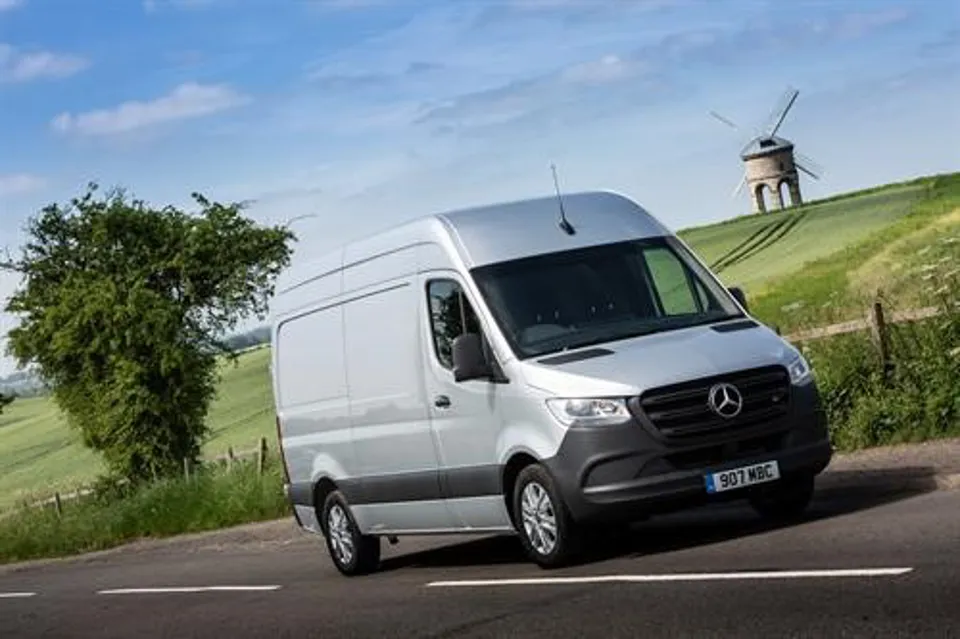The light commercial vehicle (LCV) market is now expected to decline by 28% in 2020, with 263,000 registrations compared to the previous year.
The new data, from the Society of Motor Manufacturers and Traders (SMMT), shows that the market declined by 86.2% in April as nearly all registrations stopped due to the coronavirus lockdown. Just 3,387 LCVs joined UK roads in April, 21,217 fewer than in the same month last year.
With lockdown measures effective across the country since mid-March, performance year-to-date has declined 44% to 71,294 units, with some 56,000 fewer vehicles registered than in the same period last year.
Although registrations are expected to recover in 2021, the expectation is still for a 6.1% decline on 2019.
Mike Hawes, SMMT chief executive, said: “These figures, while not surprising, are still shocking. Restoring business confidence and delivering the safe restart of retail operations will be key to kick-starting demand.
“Getting this important market moving again will be critical to the wider automotive sector’s recovery and provide a boost to the UK economy as we begin emerge from this crisis.”
Demand for smaller commercial vehicles was hit badly, with just 271 pickups registered in April, down 91.8%, while vans weighing 2 tonnes or less saw a 92.3% decline and registrations of mid-sized vans weighing more than 2-2.5 tonnes fell 90.4%.
Meanwhile, demand for larger vans weighing more than 2.5-3.5 tonnes was down 83.1%, with 2,588 vans delivered to operators, many of them working on the front line of the national crisis.
The 3,387 vans registered in April were largely made up of orders rushed through to meet demand of industries working on the front line of the coronavirus response, including fleets for the NHS, emergency services, pharmaceutical, food distribution and home delivery services, as the nation grew more reliant on these key businesses.
Sue Robinson, director of the National Franchised Dealers Association (NFDA), which represents franchised commercial vehicle and car retailers across the UK, said that the closure of dealerships had “significantly impacted” the sales of vehicles that are commonly used by self-employed contractors or small businesses.
However, she said: “Many service vehicles were still ordered in April to meet the need for the effort against coronavirus. This has buoyed the figures from crashing completely.”
She concluded: “NFDA has been closely monitoring and liaising with Government to ensure the LCV market will be able to maintain its strength for the rest of the closure period, and with manufacturers and businesses to ensure that when dealerships reopen, the sector will be able to recover effectively.”
The Mercedes-Benz Sprinter outperformed the rest of the UK motor vehicle market in terms of registrations in April 2020.
It was the first time a van has outsold the most popular passenger car in a single month since June 1990, when the Transit had higher registrations than the Escort.
With 814 units registered, Sprinter had a 24% share of the LCV market in April, more than doubling the sales of the next highest selling van.
Steve Bridge, managing director of Mercedes-Benz Vans UK, said: “Last month, we had a record high market share of 35%; for us, this has always been about business as usual, as safely as we can, working alongside the van community to keep them moving when they needed us the most.
“An incredible 97% of vans dealer groups remained open for key workers and industries in April, and all but four dealers registered vans in the month when most of our competitors were shut – a remarkable achievement.
“In terms of the hard-working workshops across the Network, labour hours have been record-breaking for every month this year, topping the previous year without fail, which has meant we have been able to ensure our customers remain on the road and doing the important jobs that keep the country moving.”


























Login to comment
Comments
No comments have been made yet.